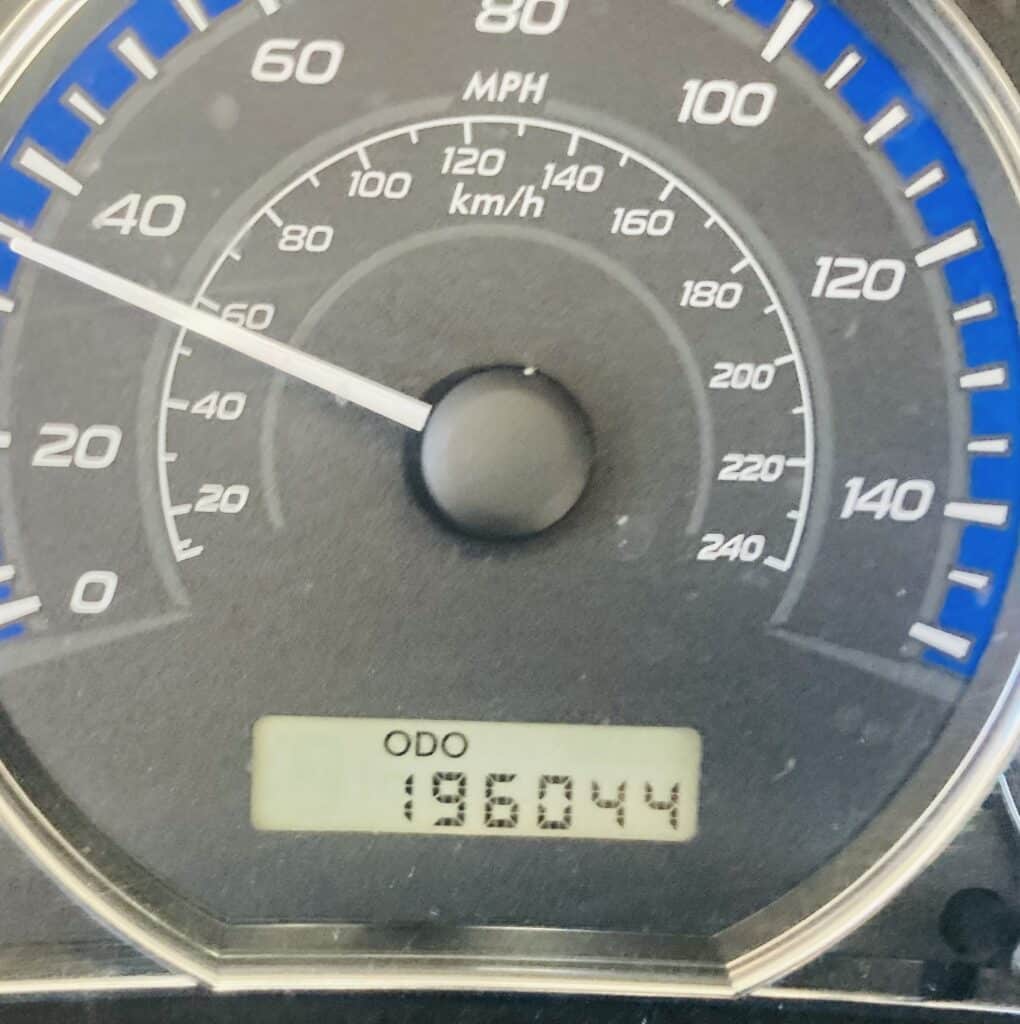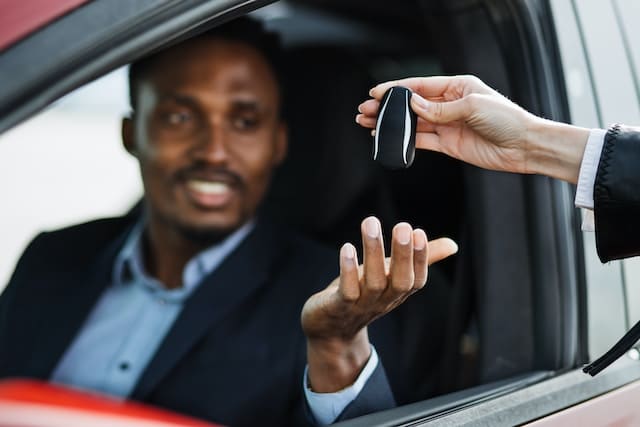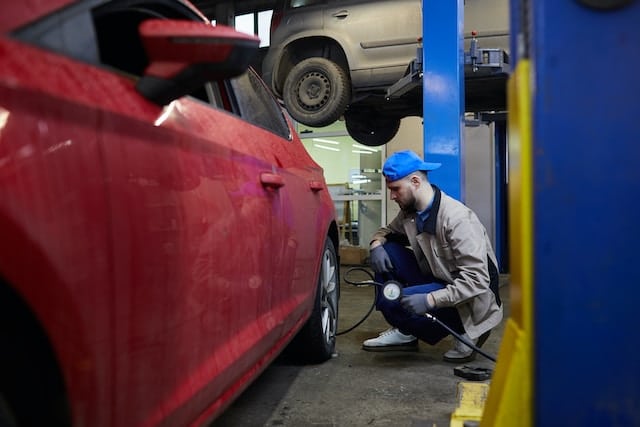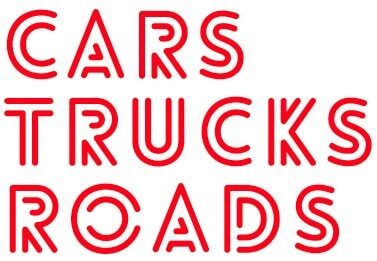
“Should I buy a car with 200k miles?” is a question that potential used car buyers often ask. It’s a valid concern, as mileage can be a key indicator of a vehicle’s remaining lifespan. The answer, however, isn’t straightforward—it depends on several factors like the car’s maintenance history, model, make, current condition, and the price. This article aims to present an objective view of the advantages and drawbacks of purchasing a high-mileage vehicle and will provide actionable tips for those considering this option.
Should I Buy a Car with 200,000 Miles?
| Pros | Cons | Other Info |
|---|---|---|
| Lower Purchase Price | Potential for Major Component Failure | Some models are known for their longevity and can handle high mileage well. |
| Insurance may be cheaper | More frequent repairs | Vehicles with proper maintenance history can be more reliable even with high mileage. |
| Depreciation is slower | Hard to find parts for older models | A thorough inspection by a trusted mechanic is crucial before purchase. |
| Potential for unique finds or classics | Less fuel-efficient than newer cars | High mileage cars might have outdated safety features. |
| Can be a good deal if well-maintained | May not have the latest technology | Car history reports can reveal past accidents, ownership history, and service records. |
[lasso id=”5415″ link_id=”1980″ ref=”amzn-astroai-tire-inflator-portable-air-compressor-air-pump-for-car-tires-car-accessories-12v-dc-auto-pump-with-digital-pressure-gauge-100psi-with-emergency-led-light-for-bicycle-balloons” sitestripe=”true”]
Comparison of Two High-Mileage Cars
| Aspect | Car < 3 Years Old | Car 10+ Years Old | General Things to Know |
|---|---|---|---|
| Wear and Tear | Unusually high for age | Expected for age | Assessing the condition of the engine, transmission, and other critical parts is key. |
| Resale Value | Potentially higher | Stable but lower | The newer car may have a higher resale value due to age despite similar mileage. |
| Maintenance Costs | May still be under warranty | Likely out of warranty, higher costs | Check warranty status; an older car will likely have no warranty and higher maintenance costs. |
| Technology & Features | Latest features | Outdated technology | Consider the importance of having modern safety features and conveniences. |
| Insurance Costs | Higher due to newer model | Lower due to age | Insurance may cost more for a newer car even with high mileage. |
| Best Choice For | Seekers of modernity and potential warranty | Those looking for lower upfront and insurance costs | The best choice depends on individual needs, budget, and value placed on age vs. features. |
Why Buying a Car with 200k Miles Can Be a Good Idea

Despite the initial apprehension, there are valid reasons why buying a high-mileage car can be a good idea. A well-maintained car with high mileage can often be a great deal cheaper than a low-mileage vehicle. It might have many serviceable miles left, especially if the vehicle is known for its longevity. It’s worth noting that many modern cars are built to last and can run smoothly well beyond 200k miles if well maintained.
The Risks of Buying a Car with High Mileage
Nevertheless, a high-mileage car can come with risks. Potential issues can include increased maintenance costs, reduced fuel efficiency, or a shorter lifespan. It’s also more likely to have wear and tear on its components, which might require costly repairs or replacements. Additionally, if you decide to sell the car later, its high mileage might deter potential buyers, impacting its resale value.
Key Considerations Before Buying a Car with 200k Miles

Before purchasing a car with high mileage, consider the vehicle’s maintenance history, its overall condition, and its make and model. Some cars are known to last longer than others, so research is crucial. It’s also advisable to have the vehicle inspected by a trusted mechanic. They can identify any potential issues or upcoming repairs, giving you a clearer picture of what you’re getting into.
[lasso id=”5401″ link_id=”1524″ ref=”amzn-noco-boost-plus-gb40-1000a-ultrasafe-car-battery-jump-starter-12v-battery-pack-battery-booster-jump-box-portable-charger-and-jumper-cables-for-6-0l-gasoline-and-3-0l-diesel-engines-gray” sitestripe=”true”]There are several key factors to consider when contemplating the purchase of a high-mileage vehicle. Understanding these will allow you to make an informed decision and potentially avoid unnecessary costs down the line.
Timing Belt and Chain
Timing belts should be replaced every 60,000 to 100,000 miles as preventative maintenance. However, a timing chain, while similar in function, often lasts twice as long. Be sure to inquire about the state of these components and consider the cost of replacement in your purchase decision.
Maintenance Cycles
Regular maintenance and parts replacement are integral to the longevity of a vehicle. Even though engines can last for hundreds of thousands of miles, other components of the car may require attention. Check the vehicle’s maintenance history to understand its current state.
Automatic Transmission
Transmission issues can be costly, with replacements running into thousands of dollars. Be aware that transmission failures tend to become more frequent once a vehicle surpasses the 100,000-mile mark.
[lasso id=”5401″ link_id=”1525″ ref=”amzn-noco-boost-plus-gb40-1000a-ultrasafe-car-battery-jump-starter-12v-battery-pack-battery-booster-jump-box-portable-charger-and-jumper-cables-for-6-0l-gasoline-and-3-0l-diesel-engines-gray” sitestripe=”true”]Brake Pads
Generally, brake pads should be replaced every 30,000 to 70,000 miles. Regular maintenance is vital as neglected brake pads can lead to further damage. Look out for signs of worn brakes and check the condition of the brake rotors.
Tires
Tire wear can be influenced by several factors, including driving style, weather, and road conditions. Be sure to check the tires’ treadwear grade and guarantee, as well as how the vehicle was driven.
Battery
On average, car batteries last about four years, regardless of mileage. It’s advisable to check the age of the battery and factor in potential replacement costs.
Water Pump
These can fail anywhere between 60,000 and 90,000 miles, potentially leading to engine overheating due to coolant leaks. Often, mechanics replace the water pump and timing belt simultaneously.
Oil Changes
Regular oil changes are essential, particularly as a vehicle crosses the 75,000-mile mark. Engines can start to loosen, leading to oil leaks and shaking, but high-mileage oil can help.
Strategies to Prolong the Lifespan of a High-Mileage Vehicle
[lasso id=”5401″ link_id=”1526″ ref=”amzn-noco-boost-plus-gb40-1000a-ultrasafe-car-battery-jump-starter-12v-battery-pack-battery-booster-jump-box-portable-charger-and-jumper-cables-for-6-0l-gasoline-and-3-0l-diesel-engines-gray” sitestripe=”true”]To extend the life of a high-mileage car, stay on top of maintenance, replace worn parts with high-quality ones, and drive responsibly. Immediate attention to any issues that arise and regular servicing can significantly prolong a car’s lifespan. With these considerations in mind, you’ll be well-equipped to decide whether buying a car with 200k miles is the right choice for you.
Ultimately, deciding whether to buy a car with 200k miles comes down to careful consideration and thorough research. It’s crucial to weigh the potential savings against the possible costs and risks. With a clear understanding of what to expect and diligent scrutiny of the vehicle’s condition and history, you can make an informed decision that suits your needs and budget.
Should I Buy a Car with 200K Miles? FAQs

Q: What are the pros of buying a car with 200k miles?
A: One of the major benefits is affordability. Cars with high mileage are typically priced lower than those with lower mileage. Additionally, if the car has been well-maintained, it can still offer good reliability and performance.
Q: What are the cons of buying a car with 200k miles?
A: High-mileage cars can often come with more maintenance and repair needs due to the wear and tear of parts. This can lead to higher ownership costs over time. Also, such cars may have a lower resale value.
Q: What should I consider before buying a car with 200k miles?
A: You should consider factors like the car’s maintenance history, condition of parts like the timing belt/chain, brake pads, tires, and the automatic transmission. It’s also advisable to get a pre-purchase inspection done by a trusted mechanic.
[lasso id=”5401″ link_id=”1527″ ref=”amzn-noco-boost-plus-gb40-1000a-ultrasafe-car-battery-jump-starter-12v-battery-pack-battery-booster-jump-box-portable-charger-and-jumper-cables-for-6-0l-gasoline-and-3-0l-diesel-engines-gray” sitestripe=”true”]Q: Is it safe to buy a car with 200k miles?
A: The safety of a high-mileage car depends largely on its maintenance history and current condition. A well-maintained car that has had regular servicing can still be a safe and reliable vehicle.
Q: How can I prolong the life of a car with 200k miles?
A: Regular maintenance is key. Make sure to address any issues as soon as they arise, replace worn-out parts with high-quality ones, maintain regular oil changes, and drive the car responsibly.
Q: Can a car last past 200k miles?
A: Yes, many cars can last far past 200k miles, especially if they have been well-maintained. The lifespan of a car is not only about mileage but also how it has been taken care of.
Q: Will insurance be more expensive for a car with 200k miles?
A: Not necessarily. Car insurance rates are typically influenced more by the driver’s history, car make and model, and location rather than the car’s mileage.
Q: Is it hard to resell a car with 200k miles?
A: While it may be more challenging to sell a high-mileage car at a high price, there is still a market for such cars, especially if they are in good condition and well-maintained.
Q: What are some warning signs I should look for in a car with 200k miles?
A: Look for any signs of mechanical issues such as unusual noises, leaks, or issues with the car’s performance. Inspect the car’s body for rust or damage. Check the condition of the interior as well. It’s also crucial to examine service records for any missed maintenance or recurring issues.
Q: How does high mileage affect the car’s performance?
A: High mileage can lead to wear and tear on the vehicle’s parts, which could potentially affect performance. However, if the car has been well-maintained and parts replaced as needed, it may still perform well.
Q: Are certain car models better to buy with high mileage than others?
A: Some car models are renowned for their longevity and are known to perform well even with high mileage. These often include certain models from manufacturers like Toyota, Honda, and Subaru. However, the car’s maintenance history is crucial, regardless of make and model.
Q: What types of repairs should I anticipate with a car that has 200k miles?
A: High-mileage cars may require repairs or replacements of parts such as the timing belt or chain, tires, brake pads, and the automatic transmission. Regular maintenance such as oil changes will also be necessary.
Q: Should I buy a car with 200k miles if it’s my only option?
A: If a high-mileage car is your only option due to budget constraints, it can still be a viable choice, especially if the car is in good condition, has been well-maintained, and passes an inspection by a trusted mechanic.
Q: Can a high mileage car be a good choice for a first car?
A: A high-mileage car can be a cost-effective choice for a first car. They are typically less expensive to buy. However, first-time drivers should be prepared for potentially higher maintenance costs and ensure they have the car thoroughly inspected before purchase.
Q: Are high mileage cars more prone to accidents?
A: The safety of a high-mileage car depends on its current condition rather than the mileage itself. If the vehicle has been well-maintained and all the critical components are in good working order, it should not be more prone to accidents due to its mileage.
Q: Could a 200K mile car end up costing me more in repairs compared to a pricier vehicle with only 100K or 150K miles?
A: This could be the case. Vehicles with higher mileage typically demand more maintenance and repair work compared to those with less mileage. The expense of these repairs might exceed the price gap between a high-mileage and a lower-mileage, albeit costlier, vehicle. It’s wise to get an idea of potential repair expenses from a reliable mechanic before deciding on your purchase.
Q: Is high mileage or age more important when considering a used car?
A: Both are important factors. A car that’s older but has less mileage may have deteriorated due to age-related factors like rust, whereas a newer car with high mileage may have more wear and tear on internal parts. It’s important to consider both aspects when purchasing a used car.
Q: Are cars with 200k miles generally more fuel efficient or less?
A: Fuel efficiency can decrease over time due to wear and tear on the engine and other components. However, if the car has been well-maintained and any necessary repairs or replacements have been made, it could still retain decent fuel efficiency.
Q: Can a car with 200k miles be a good choice for long road trips?
A: A well-maintained car with 200k miles could still be reliable for long road trips. However, it’s a good idea to have the car thoroughly checked by a mechanic before embarking on a long journey.


